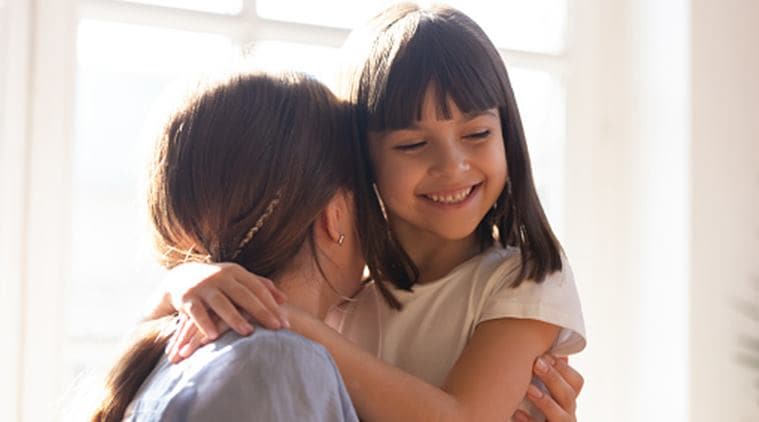Parenthesis: Apologise to your kids freely and often

Sometimes, an apology is not about if you're feeling bad or not. It's about the other person and how they're feeling. Even if you may not consider something a big deal, you need to acknowledge that it was important for the other person.

I have to admit, there are days when I feel overwhelmed. I get exhausted responding to the demands of all the various adult responsibilities that I have piled up on my plate. And I find myself on edge, irritable and snappy. And unfortunately, my children come in the direct range of my firing squad. Suddenly, the clothes lying on the floor or the unmade bed or the toys that haven’t been put away or the child who’s fussing over their food take on monumental importance and I unleash my day’s pent up frustrations, insecurities, fears and anger on to them.
In a utopian world, we would all be perfect parents, never losing our cool. But, we’ve all been there. Both as a child and as a parent. We’ve been at the receiving end of tired and stressed parental outbursts where as children, we knew our parents had overreacted to something that we had done. And now, we overreact in a similar fashion to something that our child has done.
We end up proving our authoritarian right to act how we please,w regardless of consequences. And your child gets the message that if they are in a position of authority, it’s okay to unleash on people subordinate to them. And the cycle continues.
The question then is, what do we do about it? Do we apologise? But, then does that undermine our parental authority? After all, I am in the right. His clothes shouldn’t be left lying on the floor. I have told him a million times before. And he is my child. If I don’t teach him these things, who will? Most of us struggle to apologise to our children. We worry that by apologising to our children, we lose control as parents. Our egos are somehow intrinsically attached to our apologies. But, by not apologising for our actions, our child learns that it’s okay to hurt someone’s feelings and not acknowledge it or even try to fix it. He learns that apologising makes you weak and makes you feel bad about yourself. But, that’s not what we want to teach our children. We want them to know that it’s okay to apologise. We want them to know that we all sometimes make mistakes and it’s what we do after we make those mistakes that counts. We want them to know that it takes a strong person to admit that he was at fault. So, what should we do?
Apologise freely and often
Don’t make apologies a big deal. “I’m sorry I interrupted you when you were speaking.” Let them learn that it’s important to respect other people and it doesn’t take a lot out of you to apologise. If you behave in a way that you don’t want your child to model, then apologise. “I’m sorry that I yelled at you earlier. I shouldn’t have done that.” We need to show them that it’s okay to acknowledge anger. It’s how we demonstrate our anger that is important to remember. Yelling and shouting are not appropriate ways to communicate.
Don’t apologise for setting limits
“I was angry with you for having deliberately disobeyed me but I shouldn’t have yelled at you. I will work harder at staying calm, but I need you to listen to me when I tell you to do something for your own safety.”
Acknowledge your child’s emotions
Sometimes, an apology is not about if you’re feeling bad or not. It’s about the other person and how they’re feeling. Even if you may not consider something a big deal, you need to acknowledge that it was important for the other person. “I’m so sorry that I did not buy the crayons you wanted from the store. It slipped my mind. I will put it on my shopping list for tomorrow.”
Don’t make excuses and find someone to blame
“I only yelled at you because you were not listening to me.” Your child will learn that it’s okay to act in a certain way as long as someone else provoked him. “I only hit him because he was taking my toys.”
An apology needs more than words
Ask what you can do now that will make him feel better. Make a plan to rectify the situation and prevent it from happening again. If I’m truly sorry, what am I doing to fix the situation? “I’m sorry that I was late picking you up from school. Tomorrow, I will plan for the traffic and leave 10 minutes earlier.” “I’m sorry that I shouted at you this morning when you were getting late for school. How about I wake you up five minutes earlier so we have time for a quick cuddle before it’s time to get out of bed? Will that help you get moving faster?”
Give them time and space to reconcile with you
Some children take longer than others to process their emotions. Don’t pressure them to forgive or move on before they are ready. It can be as simple as “Let me know when you feel like a hug.” It teaches them that it’s okay to take your time to reach a stage of reconciliation.
So, the next time you mess up, don’t hesitate to apologise. Remember that even in your apology, lies a life skill that your child needs to learn. It will teach him to value relationships more than his ego.
Source: Read Full Article